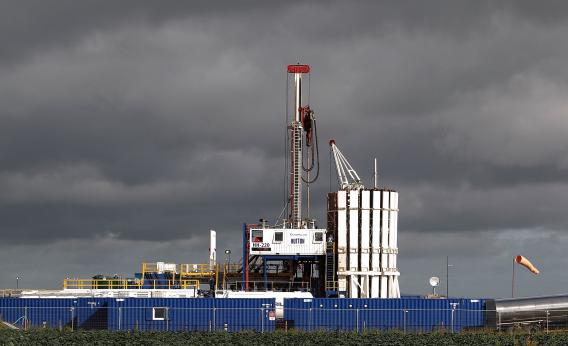The British government may have warmed to fracking. But while shale-gas extraction has put America on the road to energy self-sufficiency, it may be premature to bank on a similar boom in the UK. The country’s shale formations could be enough to meet decades of demand if bullish interpretations of geological data are right. But economics may keep much of the shale bounty under ground.
Tapping onshore shale fields might seem straightforward. Today’s import prices mean UK drillers would only have to be about half as efficient as their U.S. counterparts for onshore shale to be competitive with liquefied natural gas from abroad. But UK shale exploration is still embryonic. Britain’s small land area and dense population could complicate matters. Lancashire, where UK driller Cuadrilla says it has found about 200 trillion cubic feet of gas, counts more than 1,220 people per square mile, compared with less than 10 per square mile in shale-rich North Dakota.
Offshore reserves are likely to be five times whatever lies onshore, according to the British Geological Survey. That’s prompted talk of the UK sitting on 1,000 trillion cubic feet of gas. But offshore fracking has yet to be pioneered. The UK industry’s vast experience in the North Sea might help in developing the technique. Still, experts say it could take gas prices of up to $200 per barrel of oil equivalent to make it commercially viable. Today’s UK liquid natural gas imports go for $50/boe. And global LNG prices look set to fall as the United State begins large-scale exports from 2015.
U.S. drillers have made huge strides in efficiency, with some producers drilling wells twice as fast as they were just two years ago, according to energy consultants Navigant. Costs won’t fall forever. Some combination of tighter environmental controls, equipment shortages and rising labour costs is bound to bite eventually - just as it has in conventional petroleum production.
Given these pressures, it’s not immediately clear how UK shale could compete with LNG imports over anything but the very long term. It looks more like an insurance policy against a dystopian future of $200 oil.
Read more at Reuters Breakingviews.
